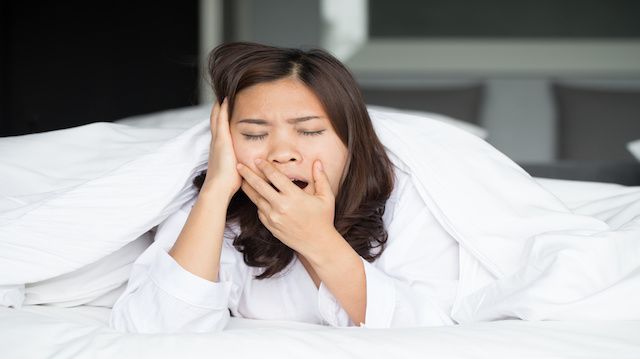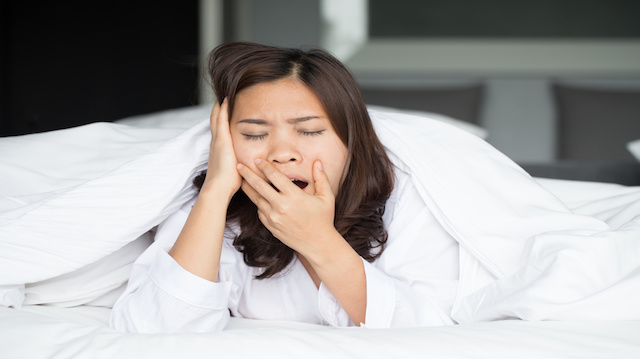
We all know what it feels like when we’ve had a poor night’s sleep. We feel foggy, tired and often experience headaches or mood issues. But how does sleep deprivation impact your athletic performance? Here are five ways that a lack of sleep can wreck your workout.
Psychological effects
While some medical professionals believe that missing a single night of sleep (as opposed to chronic sleeplessness) won’t have much of an impact on your athletic performance, it will likely affect you psychologically. If you’re feeling tired and expect to put in a sub-par performance, that’s likely going to be what happens. A lot of our ability to perform at a high level when it comes to exercise or athletic competition has to do with our mental attitude. If your head isn’t in the game, you likely won’t perform as well as you usually do.
Endurance
A study published in the European Journal of Applied Physiology and Occupational Physiology found that, although acute sleep loss apparently has few physiological effects on athletic performance, the psychological impact results in a measurably lower-quality performance during exercise. For example, in the study, test subjects were asked to walk on a treadmill until they reached exhaustion. They were later asked to do the same after missing sleep. After a poor night’s sleep, the time it took for the subjects to reach exhaustion was decreased by an average of about 11 percent.
Perceived exertion
In addition, not only did the subjects in the study experience a decrease in endurance after a poor night’s sleep, but they also felt like they were working harder. Sleep loss resulted in a significant increase in perceived exertion, despite the fact that the subjects’ heart rates remained the same. So when you miss sleep, you often end up working out less due to decreased endurance, but feel like you’re pushing yourself more.
Energy expenditure
 A survey of studies published in the International Journal of Endocrinology explains that, because the body’s energy expenditure is of course lowest during sleep, those with chronic sleep loss expend more energy over time than those who get proper amounts of sleep. The assumption, therefore, is that after a prolonged period of increased energy expenditure, it may be more difficult to perform well athletically, though more research is needed in this area.
A survey of studies published in the International Journal of Endocrinology explains that, because the body’s energy expenditure is of course lowest during sleep, those with chronic sleep loss expend more energy over time than those who get proper amounts of sleep. The assumption, therefore, is that after a prolonged period of increased energy expenditure, it may be more difficult to perform well athletically, though more research is needed in this area.
Metabolism
Of those surveyed, some studies suggest there is a correlation between sleep loss and decreased metabolism, including glucose metabolism. Over time, this can increase the likelihood of weight gain and diabetes, which of course can negatively impact athletic performance. There are, however, some conflicting studies, and again, more research is recommended.
It’s no surprise that getting enough sleep is an important part of a healthy lifestyle. Sleep deprivation has a number of negative health consequences — and it can leave us feeling burned out and stressed. In addition, it can sabotage our efforts to stay healthy by working out, and decrease our overall athletic performance.
—Sarah Cooke
Sarah Cooke, is a Certified Body Image and Eating Psychology Coach and writer who is passionate about organic food and helping others heal at the deepest level.
Sources:
http://link.springer.com/article/10.1007%2FBF02332962
http://www.ncbi.nlm.nih.gov/pmc/articles/PMC2929498

